Rush is My Jam Show #12
The show would never happen in real life, but I would love it if it did. Lots of ‘tier two’ Rush songs that are top tier for me, including Vital Signs, Between Sun and Moon, The Big Money, and Losing It. How bout that post Neil trifecta at the end of the second set? So. Many. Good. Songs.

RIP Bobby
Well, it wasn’t the obit I was hoping for. Bob Weir, original member of the Grateful Dead, has passed away at the age of 78. It was something I think all Deadheads expected to happen at some point, but I am a bit surprised. He just seemed to keep on keeping on. Apparently he died of lung complications that arose from a fight with cancer.
The first time I saw the Dead was in February of 1991. I was blown away and have been a Deadhead ever since. The last time I saw Bobby perform was last May at the Sphere with Dead and Company. All together I think I saw him perform close to 75 times. Jerry got all the attention, but Bobby was also something special. It is crazy to think that he actually spent a bit more time playing Grateful Dead music after Jerry passed than he did with Jerry.
My favorite Bobby songs include the following:
- Feel Like a Stranger
This is my all time favorite Bobby tune. Didn’t see it live enough. When my mood is off I can put this on and I immediately feel better. My favorite versions are from the Fall of 1989 and Spring of 1990.
The studio version of this song was the first Dead song I fell in love with. This live version from Cornell is worth a listen, too.
- Cassidy
The lyrics to this song are sublime. John Perry Barlow wrote the lyrics, but Bobby wrote the music and sang the tune. My favorite version is the acoustic one from Reckoning.
Epic psychedelia. This is one of Bobby’s older tunes and I usually saw him perform coming our of Drums and Space. Always a welcome base line to hear coming out of the freeform madness.
- Jack Straw
Quintessential Grateful Dead. Always a great show opener. Bobby owned this tune. The version from Europe ‘72 is my fav.
- Truckin’
Bobby shares the lyrics with Jerry on this one, but his lines are canonical Dead. Hard to beat the studio version of this tune.
This not usually a top 10 song for most Deadheads. It was often tucked away in the middle of a first set. It always resonated with me though.
- Lay My Lilly Down
This tune was on Bobby’s solo record from 2016 called Blue Mountain. Wise Bobby music.
Fare-thee-well now
Let your life proceed by its own design
Nothing to tell now
Let the words be yours, I’m done with mine

A Connection with the Past
I am teaching my students about the coming of the American Civil War. Today we read about and discussed the Compromise of 1850 and the attendant Fugitive Slave Law. Considering we are two days out from the murder of Renee Nicole Good and a day out from federal agents having shot two people here in Portland, students made some connections. Of course, some of my students are currently quite frightened by what is happening in our country. Others are seething. I noticed that it was quite easy for them to understand the anger and outrage northern abolitionists must have felt in the 1850s, when their federal government was behaving in such a patently immoral way. Unlike any other year that I have taught this, students are connecting in a unique and powerful way.
You might say events, along with an understanding of the past, are waking them up.
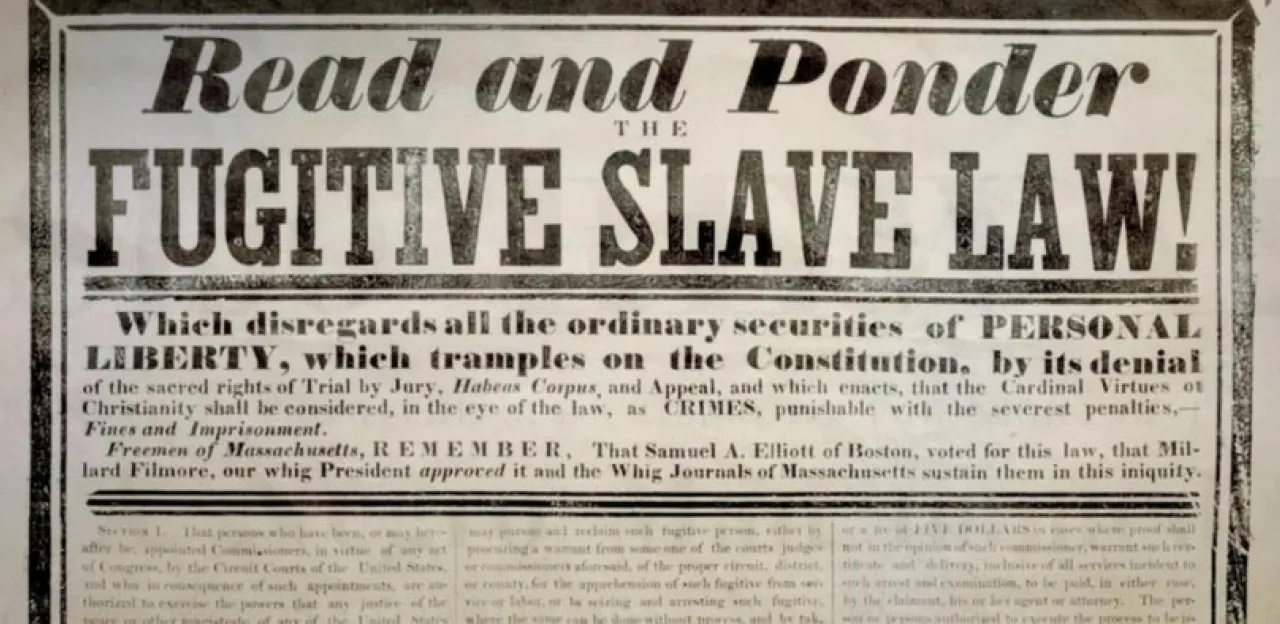
Comcast CEO Brian Roberts is Overpaid and the Leader of a Shitty Company
Comcast was so unpopular they had rebrand as Xfinity 15 years ago. Well, Xfinity sucks just as bad Comcast. They are essentially a monopoly, and they act like it (with high prices, shitty customer service, _because what are you going do about it?? _). Yesterday our internet was down for a good 9 hours. They said they were going to improve service. Once it was turned back on, it was slower than before. Today it went out again, and we got no heads up via text. Then, when I went to the app to deal with it, it wouldn’t let me sign in. I knew my password, but it still wouldn’t let me in. Then, of course, I tried to call them to get some help. Did I get a chance to talk to someone? Nope….No humans available.
The CEO of Comcast is a guy named Brian Roberts. He made approximately $34 million in 2024. That was a step down from 2023, when his total compenstaion was $35.5 million. He’s a billionaire, so these earnings are a mere pittance. Guess how he came to the CEO of Comcast? Yep, he’s a nepo baby. His daddy was the founder. He apparently owns ‘only’ 1% of the company via ownership stock, but he owns approximately 33% of the B shares (i.e., the voting shares). The top 3 Shareholders (by equity) are The Vanguard Group (~10%), BlackRock, Inc. (~8.8%), and State Street Corporation (~5%).
Oh, and Comcast also owns a controlling stake in NBC Universal. That means that a nepo baby who didn’t earn shit owns one of the biggest media companies in America, as well as the means of providing the media to your home or computer.
This is another example of someone with too much power, making tremendous amounts of money he merely has the privilege to be earning. Roberts inherited his company, and therefore his disgusting salary. And to be clear, the service they provide, especially their customer service, is shitty.
Funny side note: I just asked Google’s Nano Banana Pro to generate an image of people with pitchforks marching up to a castle named Comcast for my tiny little blog. It wouldn’t do it. Said it was a violation of their guidelines. I read the guidelines and think their explanation is a stretch. Anyway, Google’s got the back of their fellow corporoate overlords covered. Checks out.
OK, rant over.
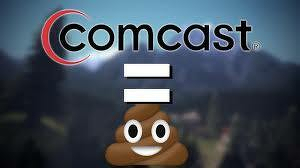
5 Recommendations
It has been a while, so here are 5 recommendations for your consideration.
-
This article by the YouGov folks documenting the sad dearth of reading in our society. To say it explains a lot is a large understatement. This is a deep dive loaded with easy to understand renditions of recent data.
-
Musical Artist Miles Miller. I few years ago I came across a few of the tunes from his inaugural record and became a fan. I especially love Highway Shoes. Recently, at the Phish show I was lucky to see, his new album was played in it’s entirety pre-show. It also has some great tunes, like Stormy and Get Busy.
-
Jeff Su’s tech YouTube channel. Su’s humor is self deprecating and his videos are both clear and helpful (assuming you use the software he teaches about). He has a newsletter as well that I subscribe to because I am deep into the Google ecosystem. His AI knowledge has also been helpful to me.
-
The Achilles Trap by Steve Coll. This book was a Christmas gift and covers the background to the US invastion of Iraq. Probably not for everyone, but for history nerds and news junkies, it’s a great read. He does a fantastic job humanizing some of the big players, like the sadistic weirdo Saddam Hussein. (Did you know he wrote novels?) Considering the hubris we are seeing at the moment in present administration, this is relevant reading.
-
A cool new blog with similar vibes to this one (but with better writing!). The author is a friend and I know his take on the world will be worth reading. Good luck Androsian!
New Year, New Books to Read
I recently visited three bookstores in New York City and three in New Haven, Connecticut. I had received some gift cards to book stores but I didn’t want to buy books back east and have to deal with traveling back home with them. Instead, I was happily conducting research. I took note of what interested me and then went shopping when I got back home.
The photo below is what I came home with, except for the John le Carré novel, which was a gift I received in New Haven. Pretty good mix; a little poetry, a little philosophy, some memoir, some history. I even managed to get one novel. The surprise of the litter was The Coming of Neo Feudalism. I am also excited to read Brandon Stratton’s Dear New York, since I am a huge fans of his other photography/interview books.
I hope you got something new to read, as well.
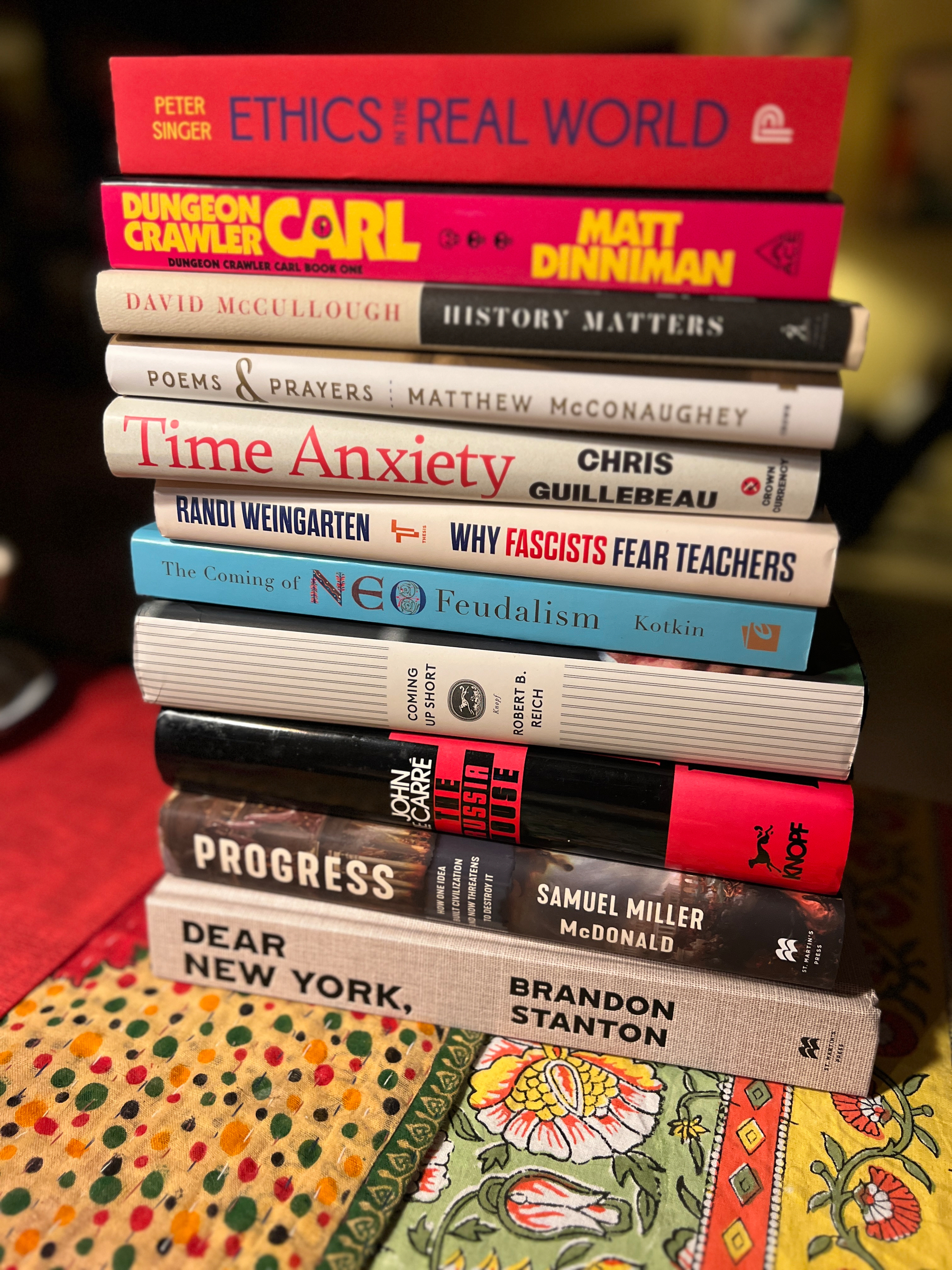
On Being Sick
Being sick is no fun. I am lucky that I don’t get sick all that often. Unfortunately, today is one of those rare times. I woke up in the middle of the night and knew my body was fighting something. My Oura ring data confirmed things in the morning (not that I needed confirmation, though it is somewhat comforting to know the ring is able to pick up on important changes in my biometrics).
My illness is complicated a bit by the fact that I need to spend a good part of tomorrow afternoon and evening flying across the country. Normally that would throw me for an additional mental loop, perhaps worsening my condition. That situation has me leaning in hard to developing a positive mindset. I am lucky I can take today off and just relax. However, I am also actively working in my mind to convince my body that I am healing and that my trip tomorrow will arise without incident. We shall see.
Being under the weather brings up a few other thoughts about mental framing. For me, I can easily get down on myself for not being as ‘productive’ as I should be. I’ve put off grading for most the past couple weeks and I had hoped to get more done today. I am reframing this as a forced pause that was needed. I am hoping that feeling better, along with the start of the new year, will give me a ‘fresh start effect’ as I dive back into teaching.
It is also a reminder that the body must be respected. I’ve been out of my own bed for almost two weeks now. I spent the night in the Charlotte airport recently, and stayed up late seeing Phish in the Big Apple. My diet, being away from home, has also been off kilter. I respect that my body is sending me a message.
Ultimately, illness interrupts the story we tell about ourselves as capable and in control. It demands less striving and more listening, at least for a while. If there’s wisdom here, it’s not in enduring sickness, but in noticing how quickly we forget the gift of feeling well again.

A Warning System at End of the Year
Ideopunk is right. We need to learn how to course correct on our own. I suppose, our spouses and close friends can provide warning signals. but then again, sometimes confronting someone about the need to rethink something can feel icky.
So how can we create or our own warning signals?
For me, one way is to use events like the start of a new year to reflect. Sure, the timing is arbritary, but it works. For one, the new year always comes in the middle of stretch of time off from work. The winter solstice has also recently occurred, giving me the sense of a new beginning.
My reflection consists of two parts. One, I give myself time for a major brain dump of everything that is on my mind. Secondly, I like the Stop/Start/Continue exercise and apply it to my life. This process usually drips out over several days, allowing my ‘system 2’ thinking to go to work. Do I catch all the warning signs in life that I need to catch? I’m not sure I’m batting 100%, but as a personal warning system, period reflecting helps tremendously.
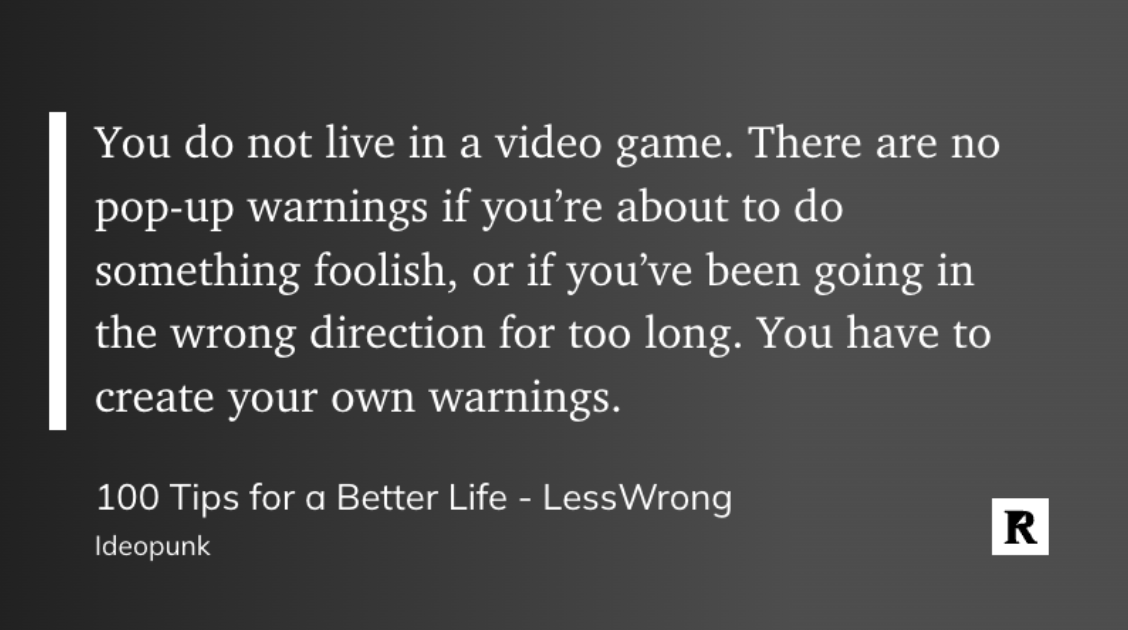

In Praise of Barnes and Noble
When I travel I love visiting the bookstores in town. Since Covid, because they are ubiquitous, I have had the pleasure of checking out many Barnes & Noble stores. In the past, when big chain bookstores ruled before Amazon, I was always more of a fan of Borders than B&N. However, the visits to various B&Ns around the country over the last several years have led me to change my views about the chain.
One of their strategies, I have learned, is to allow the managers at each location to have leeway to stock the stores based on their knowledge of the local community of book buyers. That way, each store ends of being somewhat unique with a different mix of titles. This is noticeable in Portland when visiting the various B&N locations.
Today I visited the one in North Haven, Connecticut and it was awesome. Something I noticed there, which seems to be a common practice now at their stores, is that they have a wide selection of books. They do this by filing many, many of their books sideways instead of face out. In these parts of their shelves they only have one copy of each book, but the selection of new books is impressive. Rather than the top 10 biggest sellers set up 8 deep, it was hundreds of new books per section filed sideways. I was able to spend about 80 minutes just browsing the non-fiction today.
We are visiting NYC soon and instead of Barnes and Noble I am looking forward to visiting The Strand. Will report on that visit soon.
Adult Merit Badges
It would be cool if we collected weird merit badges as adults. Imagine, finding the right Tupperware top for the container on the first try. That would earn you the Tupperware Matchmaker badge. Or, you successfully remember to cancel the trial subscription the day before they start charging you? You win a Free Trial Sniper badge. Other badges might include the Ikea Master badge for putting a piece of IKEA furniture together alone and without error (I’m still working on that one) or Social Battery Preserver badge for dipping from a party early wihout being rude.
That brings me to my recent travel experience. Travel, of course, has it’s perks–but also it’s dangers. I’m usually willing to take the risk. However, traveling to the east coast over the winter holidays is always quite risky. Recently we caught a connecting flight out of Dallas on our way to Connecticut. About 80% of the way there the pilot came on the intercom and announced we were being diverted to North Carolina, ETA 11:30 pm. The TL;DR is that we ended up sleeping in the B gate at the Charolette airport and made it up north early the next morning. This was the third airport I’ve managed to be spend the night at and the first with the whole family. We survived…and I earned myself another Slept in Airport badge.

Winter Holiday Book Haul
My family knows I like books so Christmas usually yields some new reads. I got $160 of gift certificates to Barnes and Noble and the three books pictured below. I specifically asked for The Achilles Trap. However, the one I started reading immediately is Donald D. Hoffman’s The Case Against Reality. It looks like it will cover my interest in learning more about science (I don’t know much!) and the nature of reality (and mysticism generally). The epigram, shared below, landed hard becaue it fits by current view. I’m sure I’ll post again about the author’s ideas.
Hope you got something good to read, too!
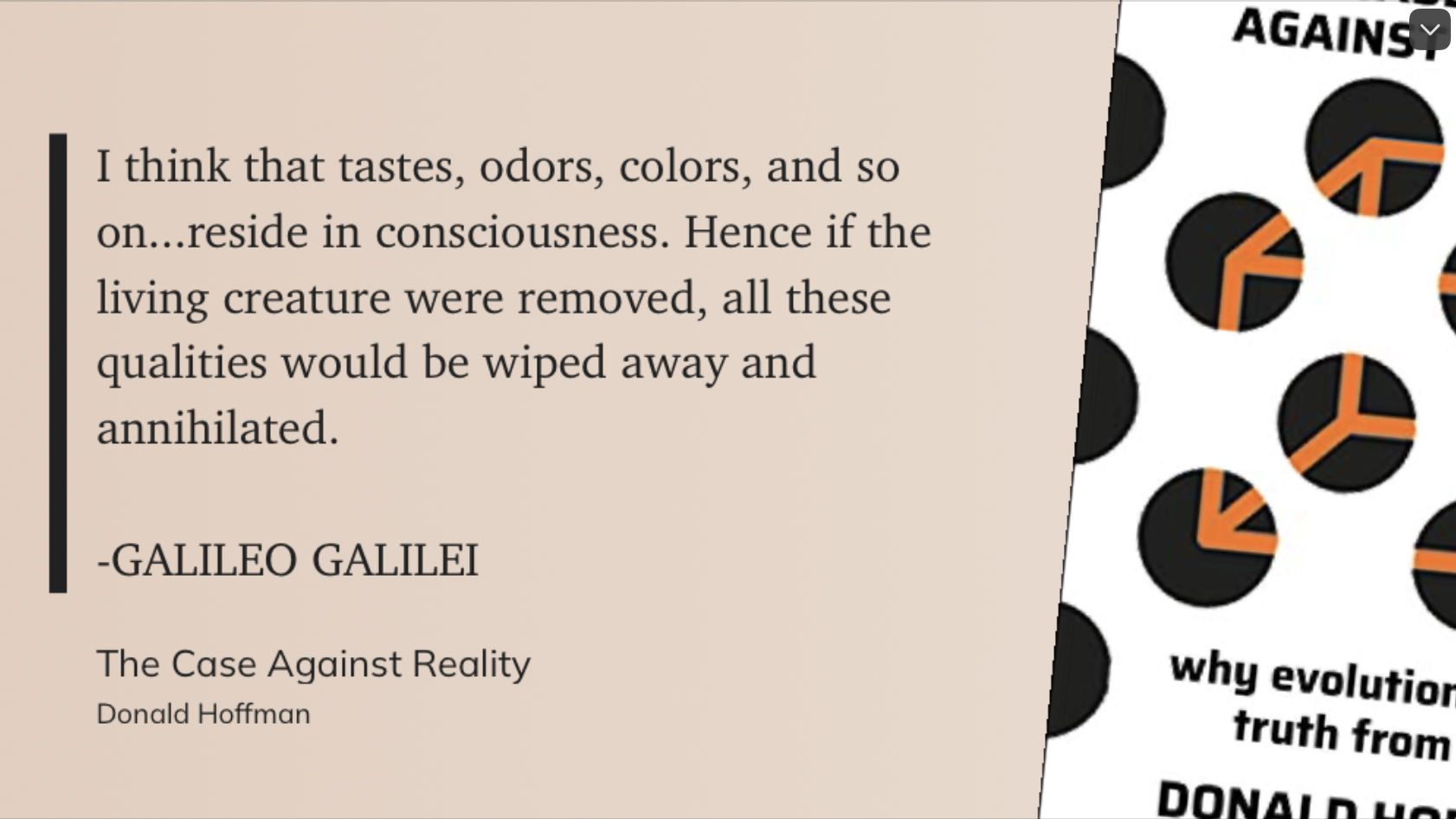
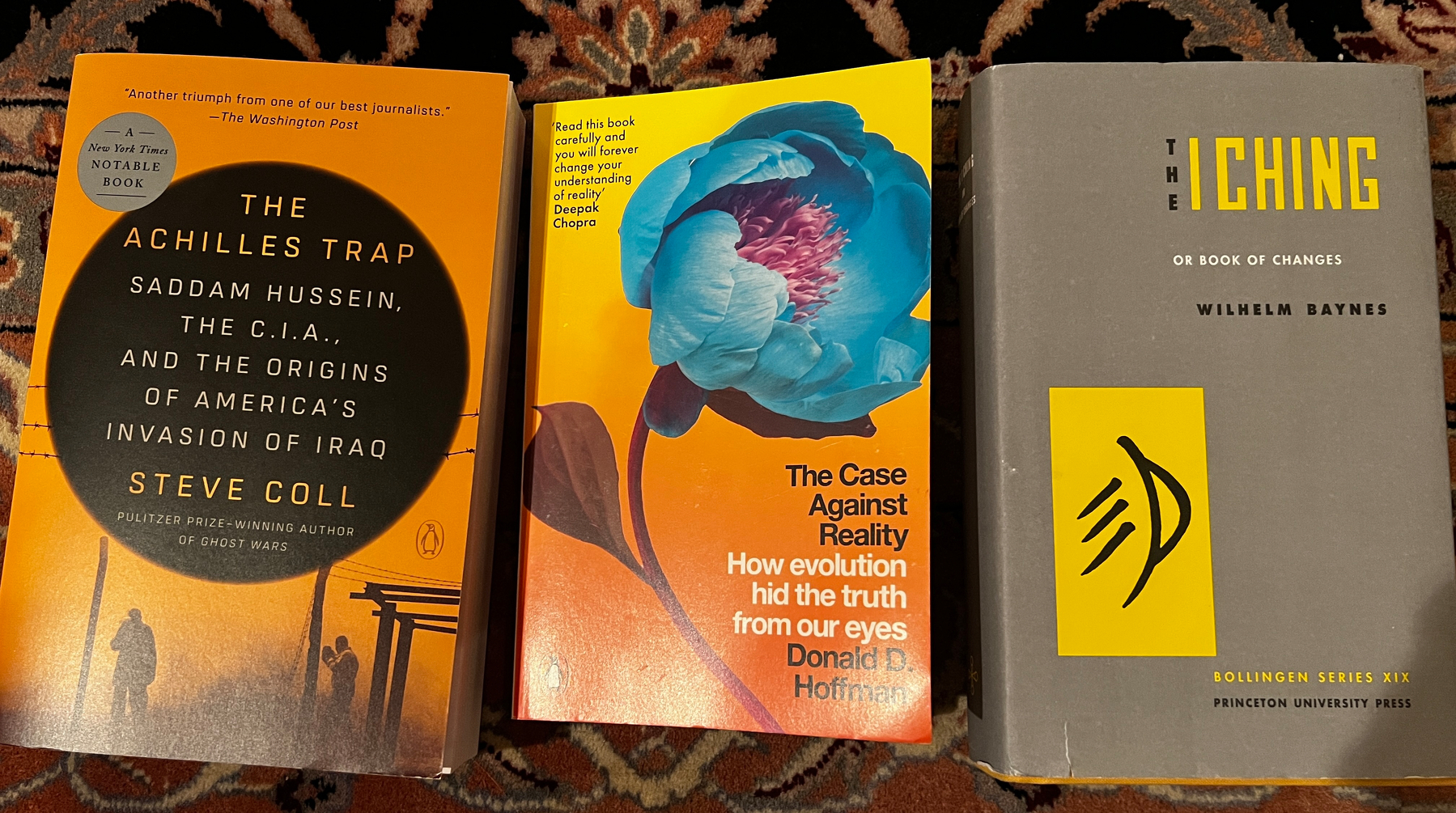
Starting Over Again
I am a believer in habits and streaks. I agree with the Ryan Holiday quote below that they say something important about what we value. However, the fact is that if you try to maintain a lot of habits every day and you keep track of them, you’re bound to break a few. Yesterday, my streak of days with a blog post ended. I was up around 120 days straight, but with travel and visiting family taking priority, my streak went kaput yesterday.
I know some people get easily bent out of shape when an important streak is broken. I get it. The impact reminds me of what some say about tracking things like sleep; that the stress of the numbers ends up making one’s sleep even worse. And again, I can see how that would work for a lot people.
Luckily, that isn’t how my mind works. I strive to continue my streaks, but once they’re over I try to get back on the horse and start a new one without feeling bad about it. Despite my blogging streak ending, I have so far managed to keep two other important streaks alive so far–my daily journal entry and my daily meditation.
So, here I am: On the road, with my days a bit topsy turvy, trying to start a new streak (and keep other ones going). I’ll do my best to beat my last blogging streak but won’t be discouraged if I can’t on this new round. We shall see.
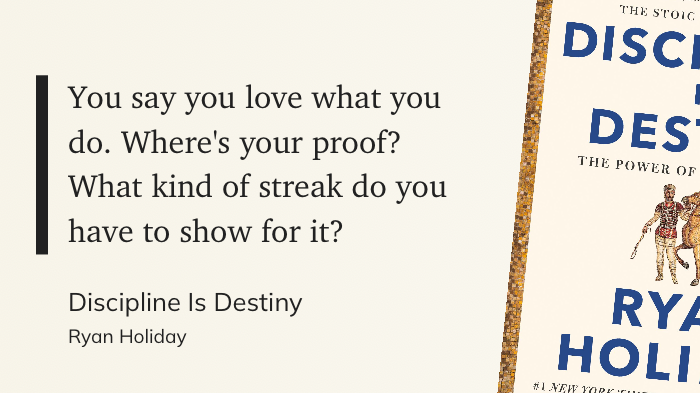
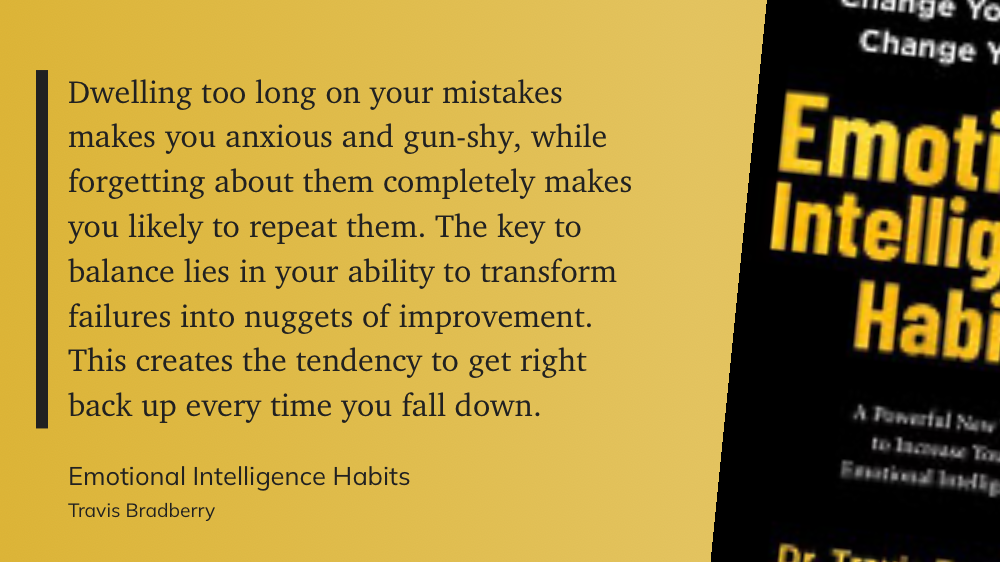
Winter Has Begun
The winter solstice is a big day on my calendar. So much of what Christmas has become is really a celebration of the fact that the darkest day of the year has been reached, and that more light is coming, despite the days continuing to grow colder. The evergreens in our homes, the lights on the trees, and the candles and their atmospheric wonder help us cope with the mugging by the dark and the cold. I love it and I love that the days slowly get longer. Indeed, it is an element of the winter and spring that I most appreciate.
Here are some beautiful poems about winter.
Wendell Berry’s To Know The Dark
And some music…

My Most Recently Added Tunes and Top 25 Most Played Tunes (in Apple Music)
As we get closer to the end of the year, the QS nerd in me kicks into gear. Apple Music makes it easy to capture a few stats, including what has recently been added and All Time Most Played. Screenshots below shine a light on my musical tastes. I’ve been using Apple Music for about 20 years, so the All Time list goes pretty far back. Another detail to note is that the pop music in the recently added pic are songs downloaded by my daughter, who uses an iPad that is signed in to my Apple ID. Oh well. I’m glad she is developing her own taste in music, though. She definitely knows what she likes and what she doesn’t.
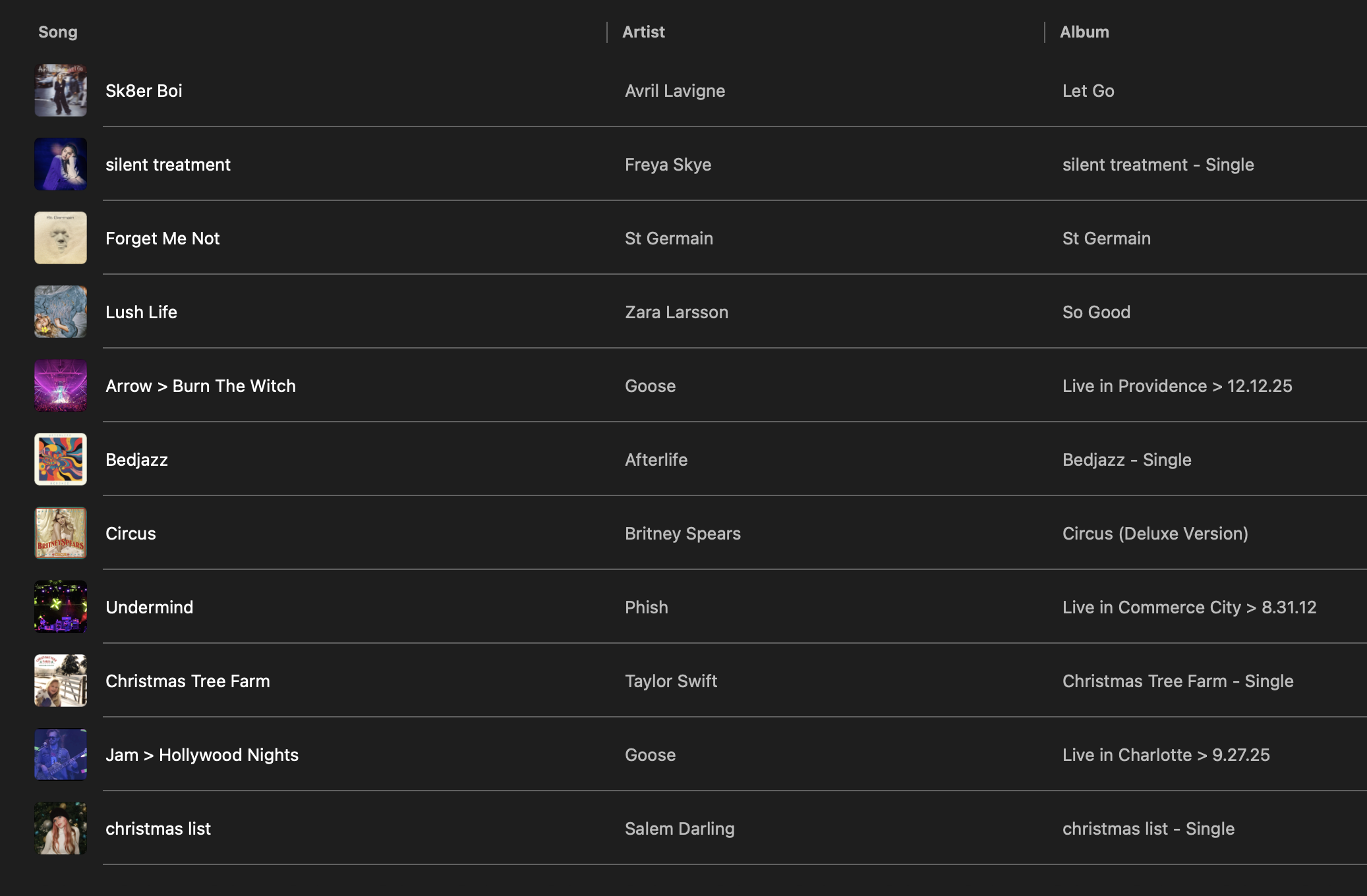
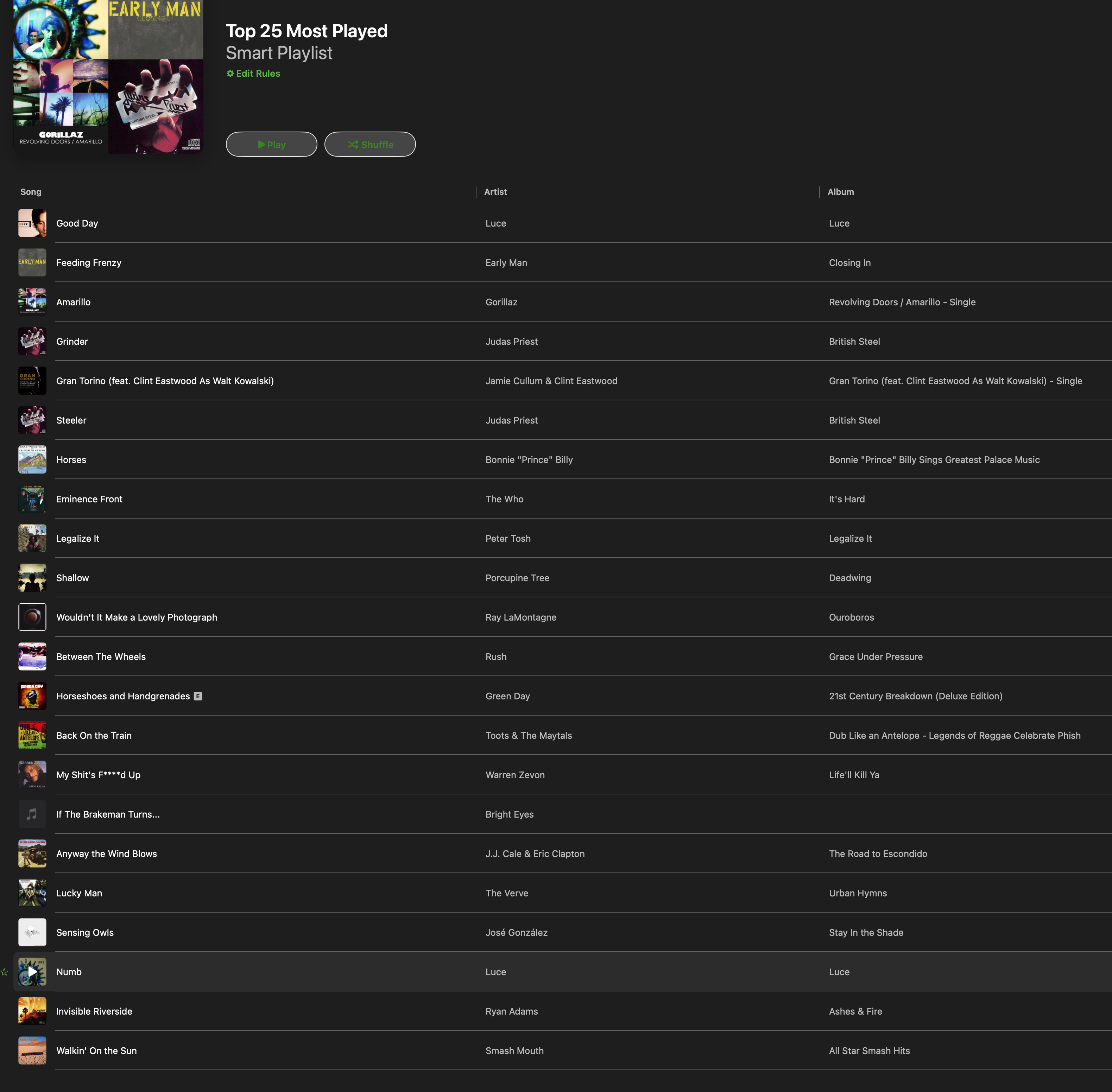
He Does Not Forget
We dropped our cat off at the kennel today and that got me thinking about cats. That led me to J.R.R. Tolkien’s poem ‘Cat’ which beautifully juxtaposes a domesticated cat with it’s wild ancestors. The poem appeared not in one of Tolkien’s most famous novels, but in The Adventures of Tom Bombadil.
but fat cat on the mat
kept as a pet
he does not forget.
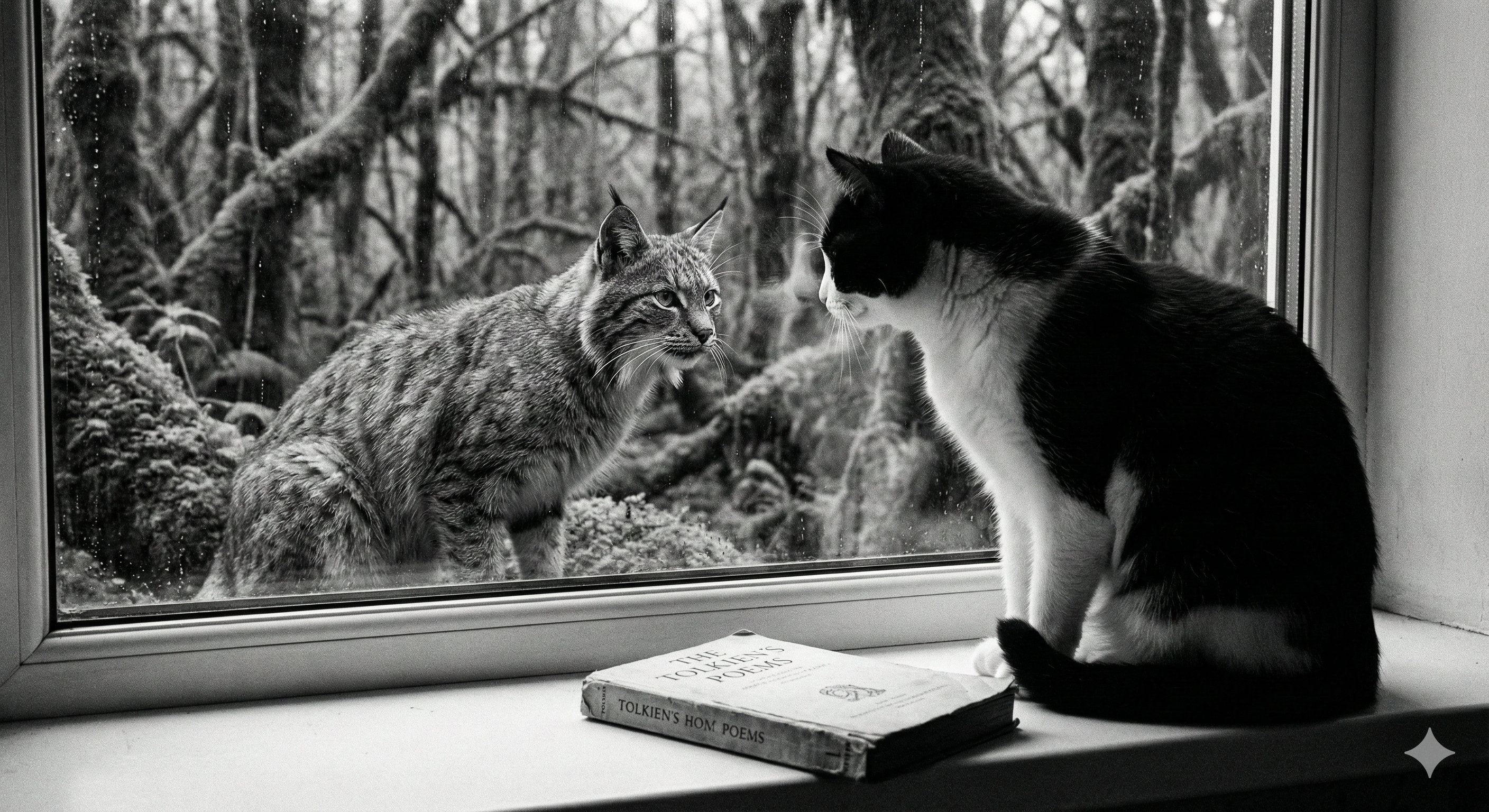
Life is Aperiodic
I just came across a concept that was new to me, the concept of being aperiodic. Technically, ‘aperiodic’ describes something that does not repeat at regular intervals. More precisely, it describes a system, pattern, or process is aperiodic if it lacks a fixed cycle—there is no consistent period after which it repeats exactly. A common example that we all learn about in school is the number pi. Another example is the tiling pattern known as the Penrose tiling pattern. Mathamatically, what is cool about this is that an aperiodic thing can still have structure, order, or rules, just not repetition.
Upon reflection, it is clear that life is aperiodic. I think we crave cycles because they feel safe: routines, habits, three-year plans. But our lived experience rarely cycles neatly. Even when days look similar on the surface, our interior weather keeps changing and the details are always a bit different. The same evening stroll hits differently depending on worry, hope, hunger, or sleep. Hearing the same song lands with a new weight. There is pattern, yes; but not repetition.
This makes me realize that it is okay if an open loop doesn’t always close when or how I expected. I want to pay more attention to the variations in the pattern of my day to day. Is that not where some of the wisdom hides, in the differences?
Iranian glazed ceramic tile work, from the ceiling of the Tomb of Hafez in Shiraz, Iran. Province of Fars.

Some Quotes from Ryan Holiday
Ryan Holiday is one of my favorite writers. I can’t recommend his books enough. Here are some great quotes from a few of his books.
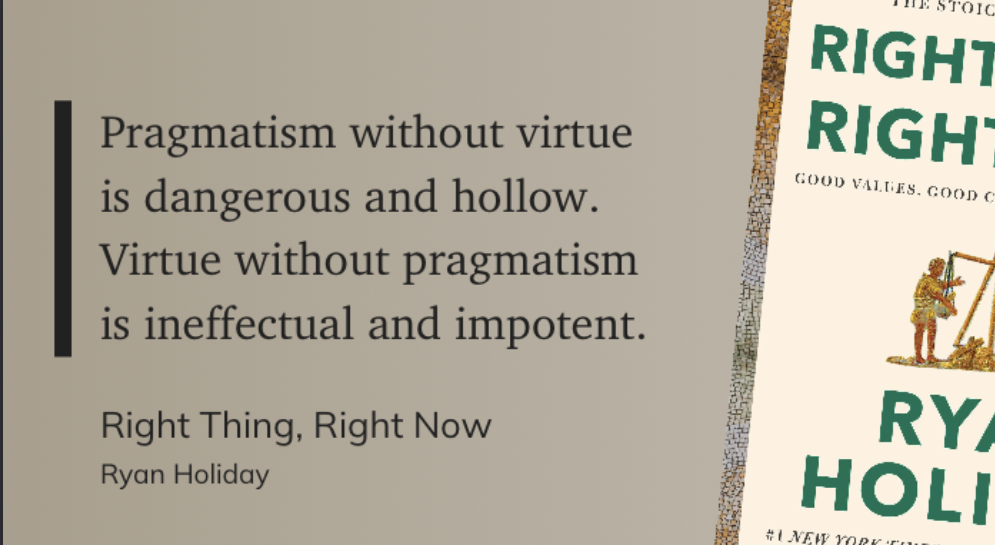
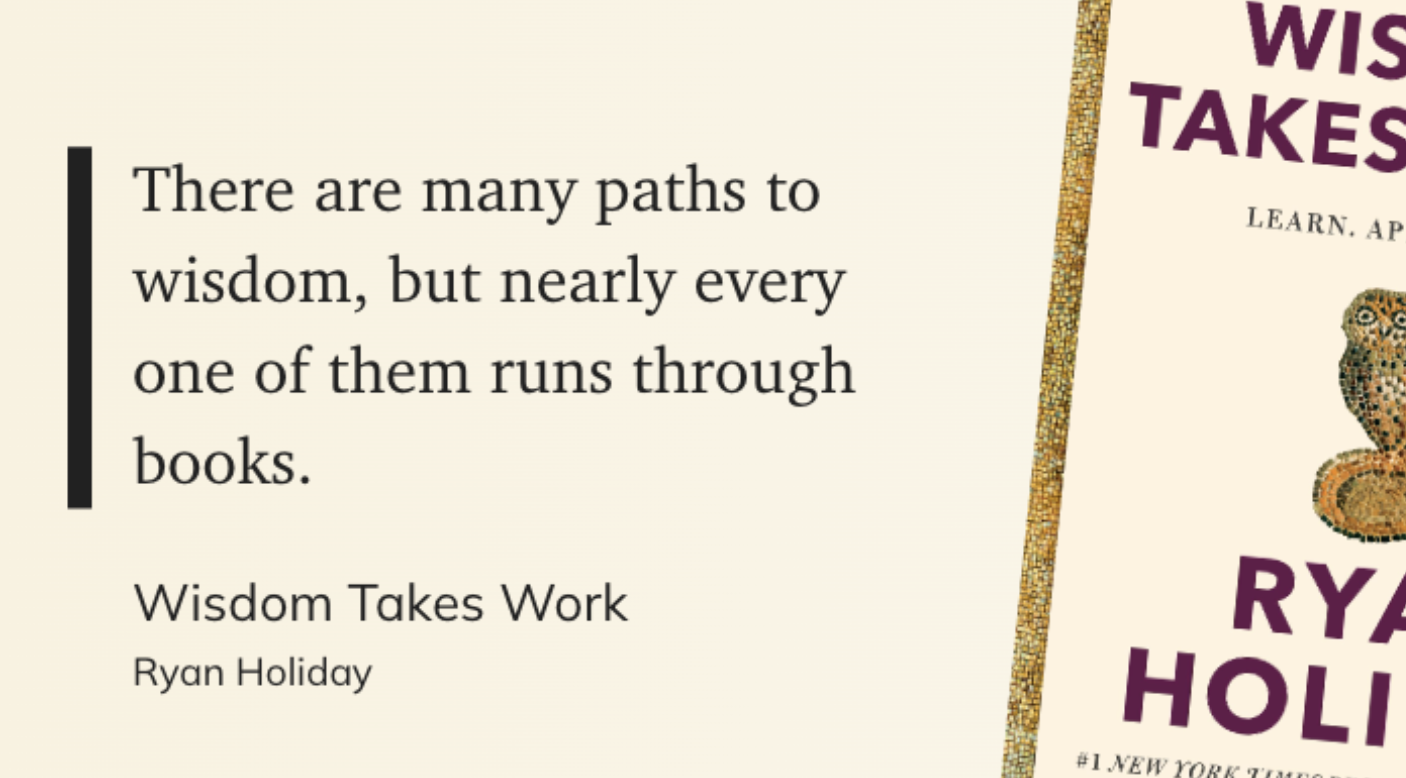
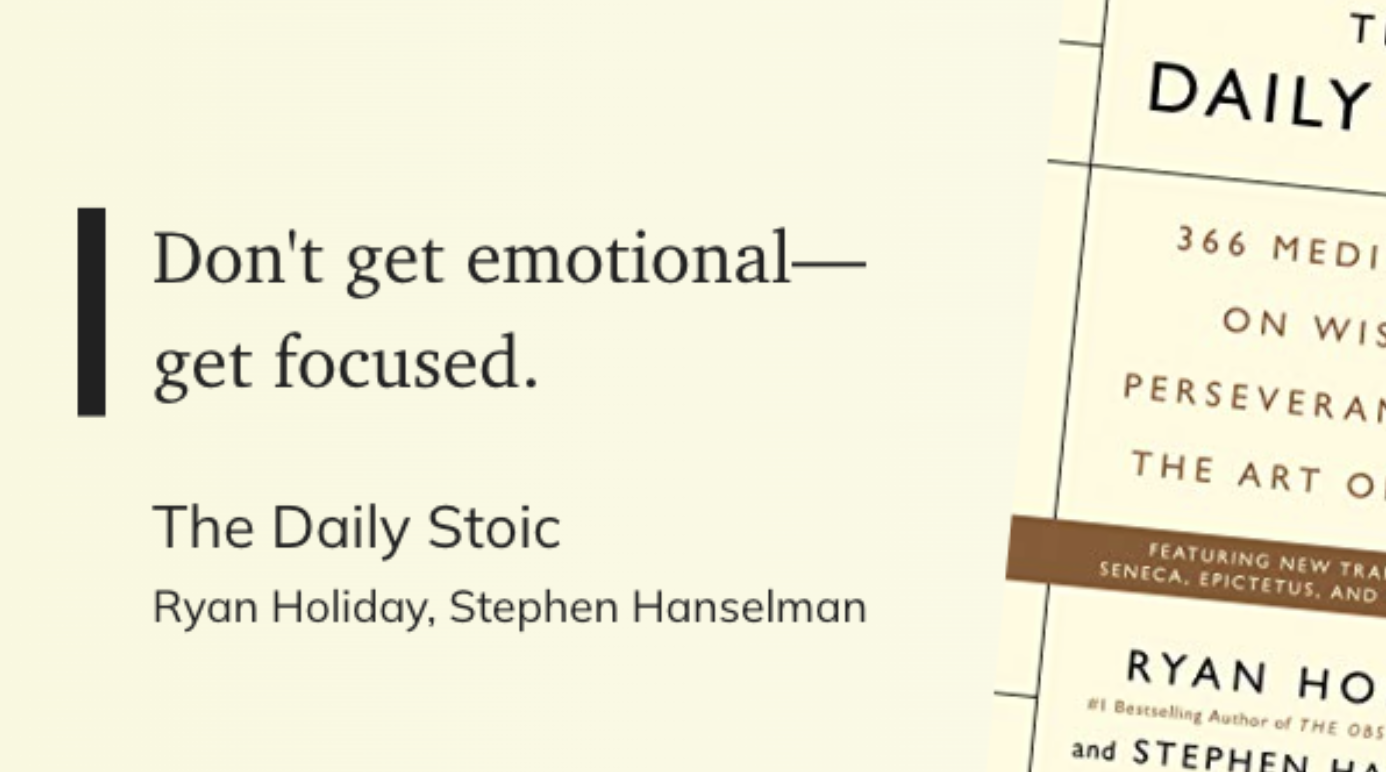
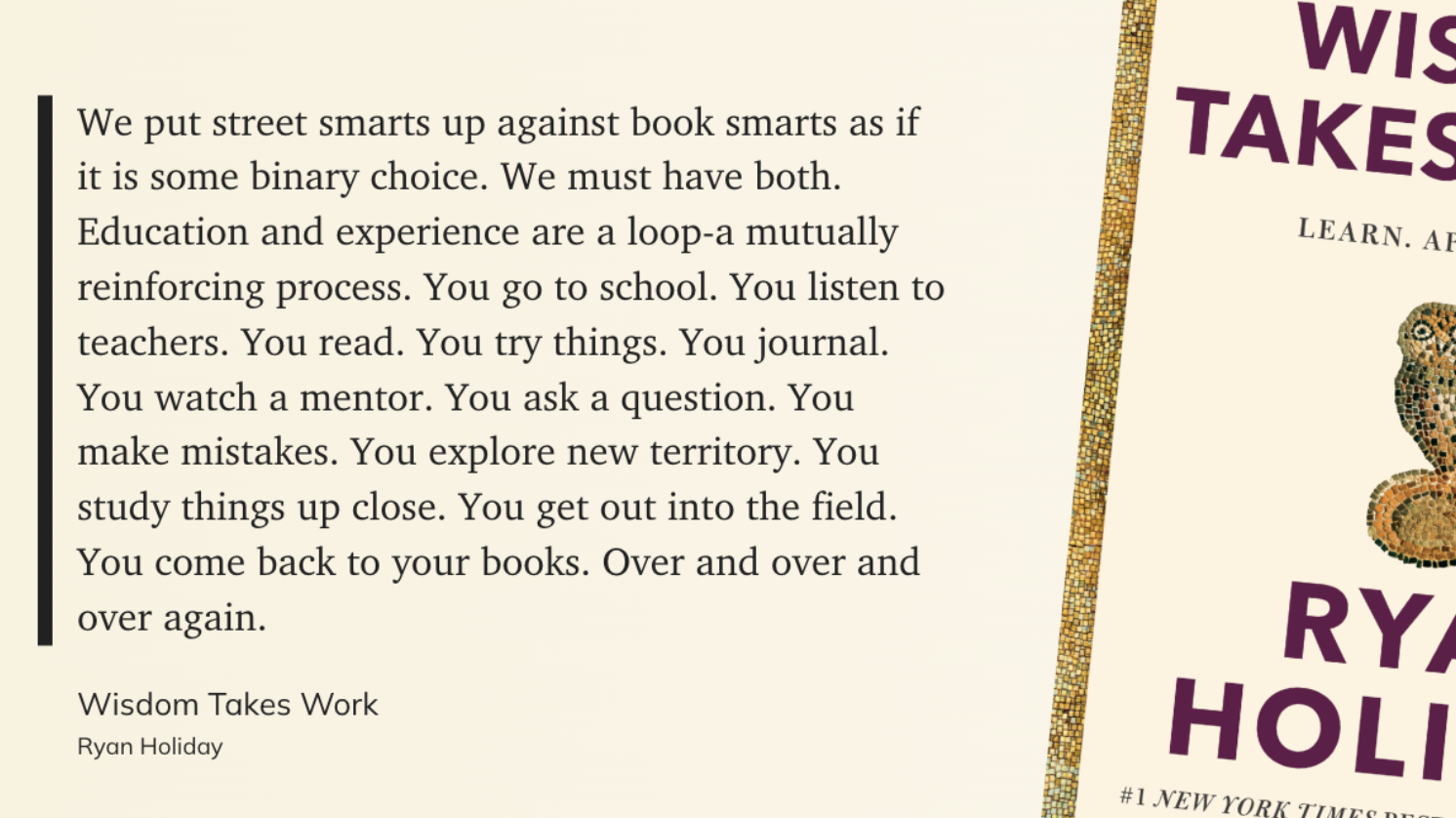
Mortality
I had never heard of the poet William Knox until I came across his name in Jon Meacham’s excellent book And There Was Light, which is about Abraham Lincoln and his spiritual beliefs. Apparently, the poem was one of Lincoln’s all time favorites. The poem is called Mortality. I looked it up and consider it a wonderful nod to memento mori; an always welcome reminder.

5 of My Favorite Studio Phish Tunes
With a show on the horizon, I have Phish on the brain. They are all about the jams and the live experience. However, there are a few of their studio versions that I love. Here are a few:
-
Devotion to a Dream off Fuego
-
Undermind off Undermind
-
Petrichor off Big Boat
-
Ocelot off Joy
-
Twist off Farmhouse
I have not seen Petrichor, so I don’t know first hand what the live experience is like. However, Devotion to a Dream hasn’t translated live for me. The other three never fail to deliver in person.
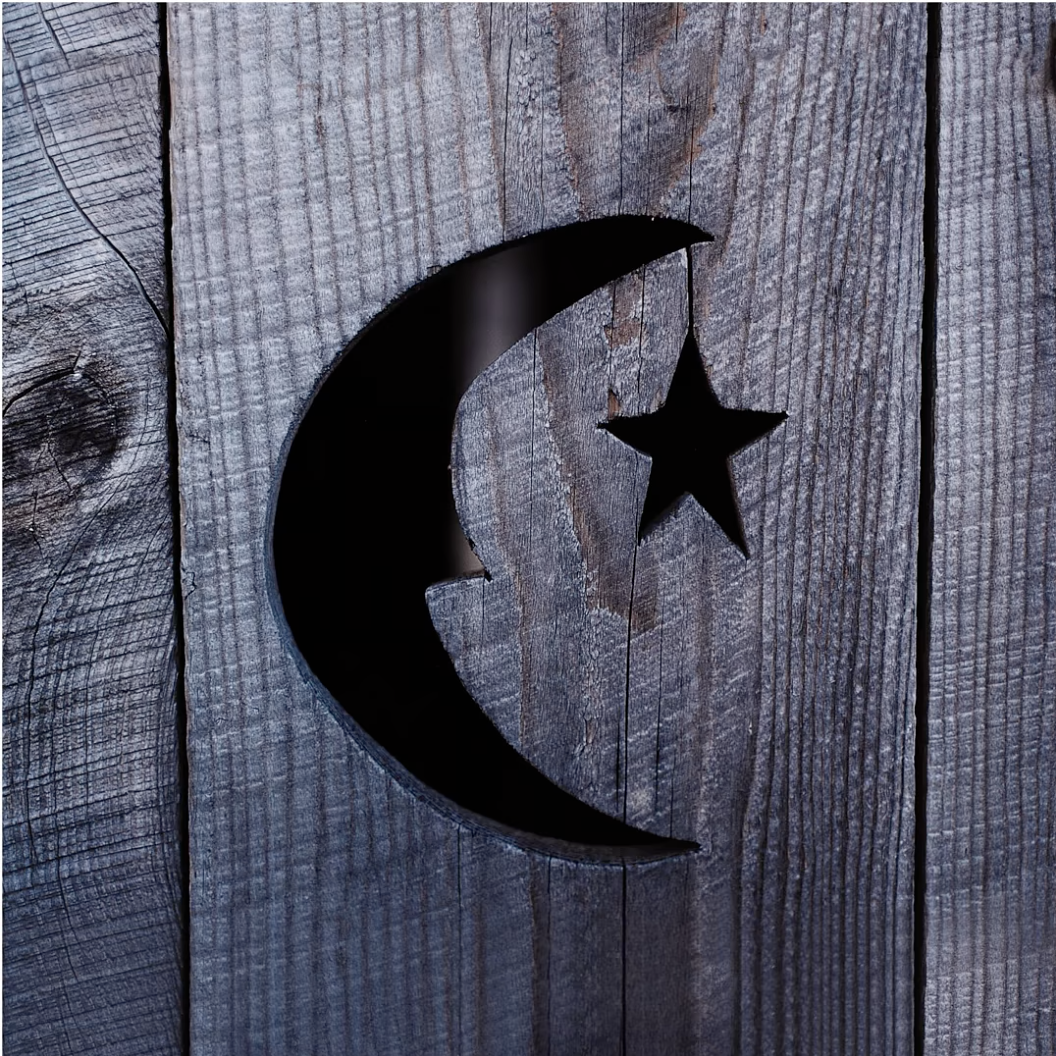
Exciting News for My School
I found out today that our school is going to be visted by Ketanji Brown Jackson, one our country’s nine Supreme Court Justices. As an AP Government teacher this is thrilling. We just finished learning about the judicial branch last week and all my students know who she is. I’ve had (now retired) congressmen Earl Blumenauer visit my class before, and early in his presidency George W. Bush gave a speech in our gym (I was conveniently out of town for that). The Justice will be visiting in March as part of a book tour to promote her recent memoir Lovely One.
Ketanji Brown Jackson was appointed by President Biden in 2022 and is the newest Justice of the Supreme Court. She’s a fellow Gen Xer who grew up in Miami, Florida and was raised by two teachers. She earned her Bachelor’s and her Master’s degrees from Harvard and served as a supervising editor of the Harvard Law Review. She replaced Justice Stephen Breyer whom she had clerked for previously. She is also the first SCOTUS justice to have been a public defender. She is also the first African American woman to serve on the Supreme Court.
Since being on the court, she has stood out for being willing to ask a lot of questions during oral arguments. By contrast, longest serving Justice Clarence Thomas went 10 years without asking a single question from the bench (from February 2006 to February 2016). Justice Brown Jackson has also written 8 solo dissents thus far, an unusually high number. Finally, students of the Supreme Court have described her as pushing ‘progressive originalism.’ Conservatives tend to stake a claim to ‘originalism,’ which is a reading of the law that harkens back to the supposed ‘original’ intent of the founders. In Justice Brown Jackson’s case, she has harkened back to America’s ‘second founding’—the Reconstruction Era–and especially the 14th Amendment to argue in favor of ideas such as affirmative action.
Needless to say, I’m stoked to see her speak in person in the spring.
